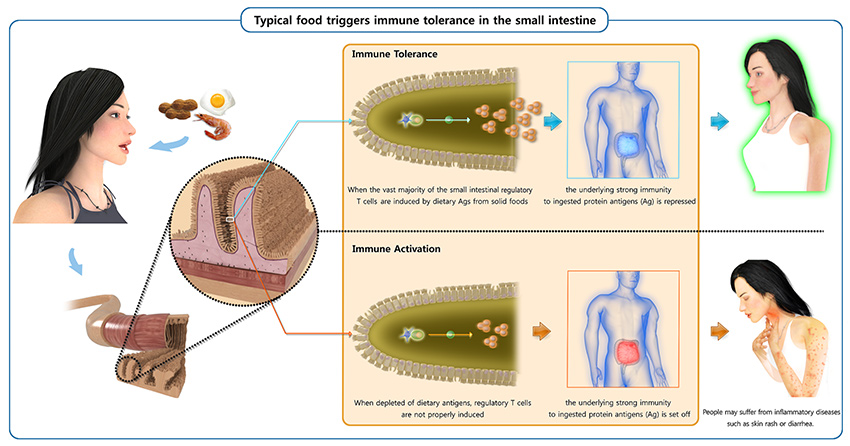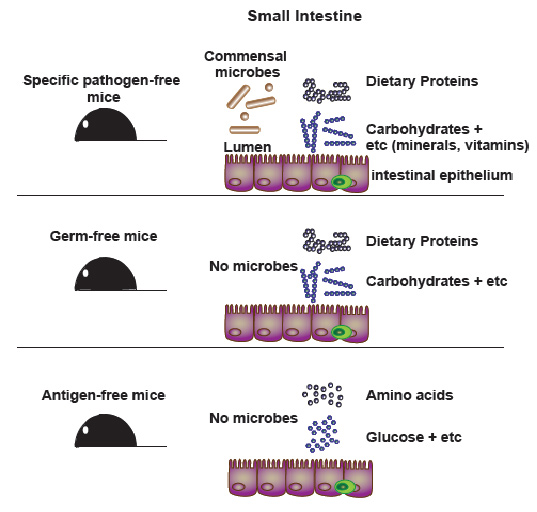주메뉴
- About IBS 연구원소개
-
Research Centers
연구단소개
- Research Outcomes
- Mathematics
- Physics
- Center for Underground Physics
- Center for Theoretical Physics of the Universe (Particle Theory and Cosmology Group)
- Center for Theoretical Physics of the Universe (Cosmology, Gravity and Astroparticle Physics Group)
- Dark Matter Axion Group
- Center for Artificial Low Dimensional Electronic Systems
- Center for Theoretical Physics of Complex Systems
- Center for Quantum Nanoscience
- Center for Exotic Nuclear Studies
- Center for Van der Waals Quantum Solids
- Center for Relativistic Laser Science
- Chemistry
- Life Sciences
- Earth Science
- Interdisciplinary
- Center for Neuroscience Imaging Research (Neuro Technology Group)
- Center for Neuroscience Imaging Research (Cognitive and Computational Neuroscience Group)
- Center for Algorithmic and Robotized Synthesis
- Center for Genome Engineering
- Center for Nanomedicine
- Center for Biomolecular and Cellular Structure
- Center for 2D Quantum Heterostructures
- Center for Quantum Conversion Research
- Institutes
- Korea Virus Research Institute
- News Center 뉴스 센터
- Career 인재초빙
- Living in Korea IBS School-UST
- IBS School 윤리경영


주메뉴
- About IBS
-
Research Centers
- Research Outcomes
- Mathematics
- Physics
- Center for Underground Physics
- Center for Theoretical Physics of the Universe (Particle Theory and Cosmology Group)
- Center for Theoretical Physics of the Universe (Cosmology, Gravity and Astroparticle Physics Group)
- Dark Matter Axion Group
- Center for Artificial Low Dimensional Electronic Systems
- Center for Theoretical Physics of Complex Systems
- Center for Quantum Nanoscience
- Center for Exotic Nuclear Studies
- Center for Van der Waals Quantum Solids
- Center for Relativistic Laser Science
- Chemistry
- Life Sciences
- Earth Science
- Interdisciplinary
- Center for Neuroscience Imaging Research (Neuro Technology Group)
- Center for Neuroscience Imaging Research (Cognitive and Computational Neuroscience Group)
- Center for Algorithmic and Robotized Synthesis
- Center for Genome Engineering
- Center for Nanomedicine
- Center for Biomolecular and Cellular Structure
- Center for 2D Quantum Heterostructures
- Center for Quantum Conversion Research
- Institutes
- Korea Virus Research Institute
- News Center
- Career
- Living in Korea
- IBS School
News Center
|
Typical Food Triggers Creation of Regulatory T Cells - IBS researchers document how normal diet establishes immune tolerance conditions in the small intestine -
Our immune system evolved to attack foreign materials entering our body. Food is technically foreign, but it is somehow tolerated by the immune system so that our body can absorb the nutrients. The immune system has built-in tolerance mechanisms that harness itself from responding to benign foreign antigens beneficial to our system, like food. When such tolerance fails, we suffer from an overt immune reaction, such as food allergies, which can be severe enough to be fatal. Despite the increasing incidence and severity of food allergies, the details on how immune tolerance to dietary antigens is normally established remain largely unknown. Scientists from the Academy of Immunology and Microbiology (AIM) within IBS in South Korea have recently uncovered one of the key mechanisms in the small intestine that triggers this process. A key mechanism used by our body to induce immune tolerance is by induction of regulatory T (Treg) cells, a subset of white blood cell that orders other T cells to stand down. In the gut, a special subset of Treg cells, called peripheral Treg (pTreg) cells, exists in both the small and large intestine. Previous research showed that pTreg cells are created in the large intestine in response to the normal commensal intestinal bacteria, which play a vital symbiotic role in our health. pTreg cells were also believed to exist in the small intestine to inform the immune system on which food antigens can enter our body. The IBS research team has now discovered that normal diet does indeed induce the creation of the pTreg cells in the small intestine. Experiments with Mice
To determine whether normal food prompts mucosal immunity in the intestines, the research team generated a special type of mice, dubbed “antigen-free” mice that were not used in research since the 1980’s. Through a painstaking process, these antigen-free mice were generated from germ-free parents who are completely devoid of any microorganisms. Like their parents, antigen-free mice are also germ free, but they are also fed a meticulously assembled, ultra-refined “elemental” diet comprised of basic building blocks of life that keeps them alive and healthy, but is free of antigens (macromolecules) that can activate the immune system. In essence, antigen-free mice were generated in order to test whether typical food antigens actually contributed to the development of pTreg cells in the small intestine. The result was that like germ-free mice, the antigen-free mice were depleted of pTreg cells in their colon, but what was new and exciting was that they also lacked pTreg cells in their small intestines. Hence, it became clear that normal dietary antigens were responsible for signaling pTreg cells to be generated at this site. Dietary Evolution: Liquid to SolidsTo determine how early in ontogeny pTreg cells develop the IBS researchers compared the effect of milk vs. a solid food diet in pre and post-weaned mice. Neonatal mice on milk possessed only a few pTreg cells in the small intestine. Later, when these mice were weaned onto a solid food diet, large numbers of pTreg cells in the small intestine emerged rapidly within a few weeks. However, when neonatal mice were weaned onto an antigen-free elemental diet or a diet free of proteins, but only their amino acid building blocks, they didn’t develop pTreg cells in the small intestine. From this they concluded that the majority of pTreg cells in the small intestine develop in response to antigens derived from proteins in a solid food diet. These findings beg the question: Why don’t all neonatal mice that haven’t had a chance to eat solid food (and develop pTreg cells) immediately get food allergies when weaning off of milk? According to researcher Kwang Soon Kim, “In early life, the intestinal environment is more skewed to generate a tolerogenic response, presumably helped by certain tolerance-inducing components in the milk, and from the rapid generation of pTreg cells upon introduction of solid food.” Hence, mother’s milk and newly generated pTreg cells appear to work together to prevent food allergies when toddlers begin to enjoy rice and other solid food. This idea is also supported by the researchers’ finding that when neonatal mice were allowed to grow into adults without pTreg cells, i.e., without exposure to solid food, they` become much more susceptible to experimentally induced food allergy. Forward ThinkingA recent study from the UK called LEAP (Learning Early About Peanut allergy) set out to prove that “regular eating of peanut-containing products, when started during infancy, will elicit a protective immune response instead of an allergic immune reaction”. The results were astounding; 17% of the children who avoided peanut-containing products developed allergies by the age of 5. Remarkably, only 3% of the children who ate peanut-containing products developed allergies by the same age. The trial, taken as a microcosm, confirms AIM’s director Surh’s assertions, “our data could explain why children suffer from a higher incidence of food allergy than adults and why childhood allergy spontaneously dissipates with time.” With the results from both Korea and the UK the presence of both diet and microbe-induced populations of pTreg cells may be required for the development of complete tolerance to food antigens. Food allergies are on the rise, affecting 1 in every 13 children in America, so it is becoming critical to understand how to control and eliminate allergic responses. While this study didn’t focus directly on food hypersensitivity treatments, the antigen-free mice provided a better understanding of the processes involved in food allergies. This work may be a small part of something larger as Professor Surh said, “I believe that dietary antigens might also affect autoimmune diseases in other organs”. This work brings us one step closer to understanding how the body’s immune response works and what we can do to control it. Notes for editors - References - Media Contact - About the Institute for Basic Science (IBS) |
|||
|
|
| Next | |
|---|---|
| before |
- Content Manager
- Public Relations Team : Yim Ji Yeob 042-878-8173
- Last Update 2023-11-28 14:20













